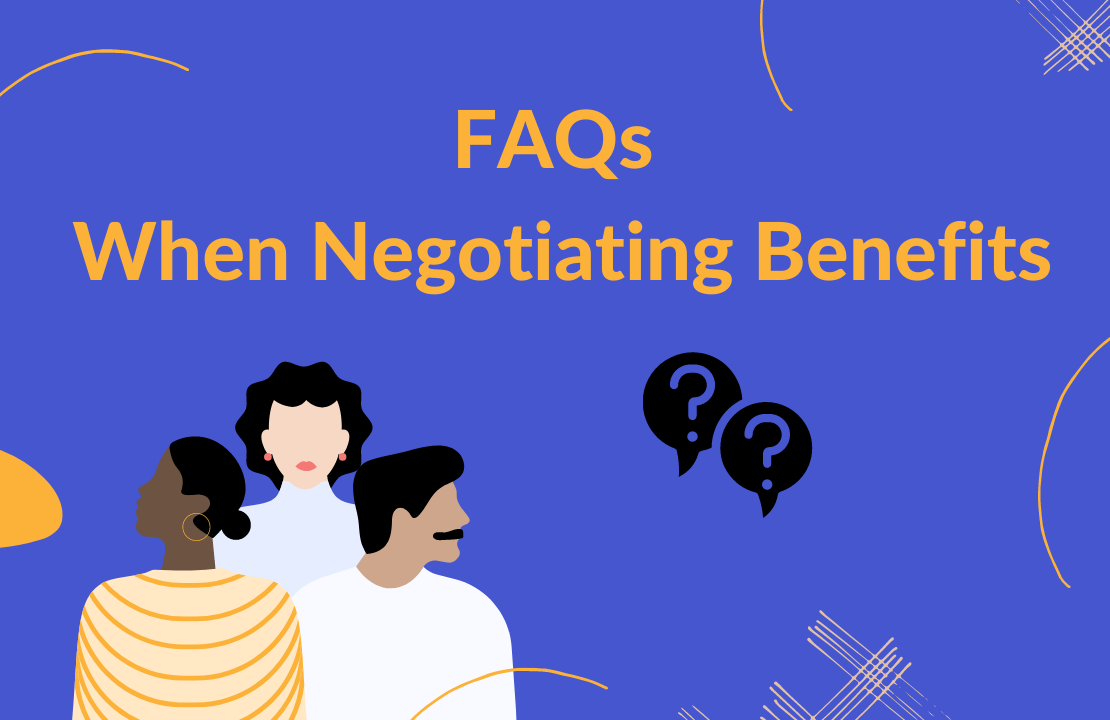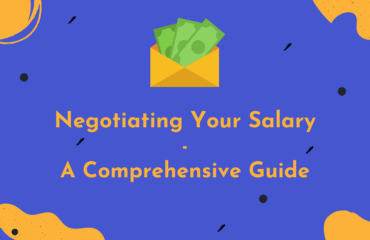Table of Contents
- 1. Why should you negotiate benefits?
- 2. Can you negotiate benefits?
- 3. What benefits can you negotiate?
- 4. How do I know if the benefits offered to me are fair?
- 5. When is the best time to negotiate benefits for candidates?
- 6. Who to speak with to negotiate my benefits?
- 7. How do you negotiate benefits?
- 8. How do you avoid sounding greedy?
- 9. If the benefit elements of the compensation package seem perfect, should I just accept it?
A compensation package typically comprises salary and benefits. While salary makes up a significant portion of the offer, the benefit elements shouldn’t be brushed aside. According to the U.S. Bureau of Labor Statistics, benefits combined are worth 31% of your total compensation package. If you do the Math, it’s not a sum you can just leave on the table. Additionally, even benefits without a direct financial impact may be crucial for your work-life balance. So, make sure to consider benefits when you plan your attack.
Benefits are a form of non-financial compensation that is generally offered in addition to salary. Some examples include paid time off, flexible working, and healthcare. If an employer cannot negotiate higher pay, you can use the benefit elements to bridge any gap. This article will answer some of the frequently asked questions to help you achieve optimum results when negotiating benefits.
1. Why should you negotiate benefits?
While most benefits don’t have a direct financial impact on your salary, they can be useful in your professional and personal life. For instance, additional vacation days or workplace flexibility don’t add money to your pocket. However, taking time away from the stresses of your work can help you feel refreshed, improve physical and mental health, and be more prepared to handle whatever comes when you return. When your work is flexible, it gives you the opportunity to do your job in a way that suits your lifestyle and circumstances.
As they say, money isn’t everything. In the same way, salary isn’t everything when it comes to job satisfaction. The company’s non-monetary treats and gestures can make you feel valued. The more you enjoy where you work, the more likely you will feel fulfilled. If you’re spending 1,786 hours per year at work, you would want that to be in a place that gives you a sense of good employee experience and job satisfaction, wouldn’t you?
2. Can you negotiate benefits?
The quick answer is yes, you can and have the option to negotiate benefits. This element of the compensation package doesn’t impact the employer’s salary budget for the position. So, you can expect them to have some room for negotiation in this aspect. As a matter of fact, a study revealed that approximately 32% of companies are open to negotiating benefits.
Suppose you’re offered a salary that’s lower than your expectation or requirements. But the employer has little room for salary negotiation. You can then attempt to negotiate benefits to supplement some of your out-of-pocket expenses or improve your employee experience. We recommend focusing on your top two to three elements and prioritizing your requests based on your requirements.
3. What benefits can you negotiate?
Benefits can add significant value to your compensation package or your personal life. So, considering your needs is essential when thinking about how to negotiate a better deal. Employers may offer different types of benefits. But here are some of the things you can negotiate other than your salary.
a. Paid time off
We all know the importance of work-life balance for our well-being and work productivity. So, taking a break from work every now and then is essential. Learn about the company’s time-off policies and ask if they can increase the days.
b. Job Title
While a job title may not provide an immediate monetary value, it can make a difference in your career advancement and salary growth. If the job title doesn’t accurately describe responsibilities, consider a discussion with the employer. This would allow you to be in a stronger position for a more senior role and better salary in your future job applications.
c. Flexible Work Arrangement
With COVID-19 still lurking, flexible working has now become the new norm. Many companies have now adopted working remotely or using the hybrid model. Understand your target employer’s current work arrangement and how it aligns with your needs.
d. Severance Package
A severance package is pay and benefits you may be eligible to receive if you leave the company unwillingfully. It varies greatly by location, industry, and company. Some of its common elements include severance pay, paid time off, and transition and outplacement services.
e. Healthcare Benefits
As the world continues to struggle to stop the pandemic, healthcare has taken on greater importance than ever. Ask your contact in HR about the company’s healthcare coverage. If it’s a bit off, then consider including this in your negotiation list.
f. Child Care Support
Nowadays, caring for kids can cost as much as buying a brand new car each year. According to CNBC, parents spend an average of $8,355 per child on securing year-round child care. So, if you’re a parent, child care support should be on top of your list for negotiation.
g. Signing Bonus
When you join a company as a new employee, you may be paid a signing bonus. This is a monetary incentive offered by some companies to attract top talents and encourage employee retention. In some cases, the full amount is not paid immediately but spread over time. So, make sure you fully understand the terms before sealing the deal.
h. Tuition Reimbursement
If you have plans of continuing your education, the tuition reimbursement benefit can save you from the costly tuition payments. To convince the employer, communicate how they can benefit from investing in your professional development. Mention how the knowledge you will gain can help you become more effective at work.
4. How do I know if the benefits offered to me are fair?
Once you receive the copy of the company’s benefits package, we recommend doing your own research for you to know if the offer is fair. If other companies offer the benefit you requested, you can use it to back up your argument during negotiation. This would allow you to demonstrate that your requirements are reasonable and aligned with industry standards. As a result, you are more likely to achieve a favorable outcome.
To do your research, visit the employee benefits page of other companies in your industry to see what they generally offer. You can also use online tools like Payscale.com, Glassdoor, and Salary.com. Apart from salaries, these tools also provide an option to view benefits information of a company or job.
5. When is the best time to negotiate benefits for candidates?
Employers would generally ask for salary expectations early in the hiring process to ensure alignment between candidates’ expectations and the budget allocated for the role. This can be a good opportunity to communicate your value and the figure you would be happy to accept. Make sure to provide a flexible range so that it doesn’t become a deal-breaker when your answer is a bit off. While you want to ensure your salary expectations would be met, you need to resist the urge to initiate a negotiation at this stage.
The most appropriate time to negotiate benefits is when you receive a job offer. Take the time to evaluate the beneficial elements of the compensation package to see if they are aligned with your needs. If you determine areas for improvement, don’t hesitate to initiate a negotiation. Remember that negotiation is a give and take process. So, before getting into a negotiation, you need to map out exactly what you are willing to give and what you want to take. Then, attempt to establish a mutually beneficial agreement.
6. Who to speak with to negotiate my benefits?
When you apply for a new job, you will likely talk to four to six people throughout the hiring and interview process. The recruitment and interviewing team may comprise the recruiter, hiring manager, team members, and even a senior-level decision-maker. That being the case makes it confusing to determine with whom to negotiate benefits.
Before entering a negotiation, ask yourself a critical question. Am I talking to the right person? Hiring managers are responsible for identifying and hiring the most qualified candidate from the applicant pool. They also have the final say when it comes to hiring decisions. So, if you need to negotiate the terms of your benefits, the hiring manager is your guy.
7. How do you negotiate benefits?
While you can negotiate benefits, companies tend to be more rigid in their employment terms concerning benefits. An XpertHR’s 2021 Survey on Recruiting and Hiring supported this, revealing that employers are more flexible with pay than benefits. So, applying negotiation best practices is imperative in maximizing your chances of getting the benefits you need. Here are some tips.
- Understand what aspects of the company’s benefits package are open for negotiation.
- Do your research to determine if your potential employer’s offer is aligned with what other companies in your industry commonly provide.
- Justify your request by building a strong case based on your candidate’s value proposition and relevant data.
- Make sure the agreed-upon benefit elements are reflected in the updated job offer.
8. How do you avoid sounding greedy?
Negotiation does not come easy for everyone. As a matter of fact, a study revealed that nearly 48% of their respondents are apprehensive about negotiating. One of the reasons people provided was fear of coming across as greedy. While this is a valid concern, the only way to get the benefits you deserve in many cases is through negotiating. Here are some tips to avoid sounding greedy.
- Show gratitude for the offer and interest in working for the company.
- Present your requests as a point of discussion to find common ground to bring you on board.
- Justify your requests based on market averages and the value you can bring to the table, rather than based on personal needs.
- Stay away from unreasonable demands.
- Make it clear that you are prepared to seal the deal once you establish a win-win agreement.
9. If the benefit elements of the compensation package seem perfect, should I just accept it?
Rash decisions often lead to bad choices. So, even if you’ve been offered all the benefits you have asked for, avoid saying yes right away. Take your time to review the offer and make sure you know the terms. Demonstrate gratitude by graciously thanking the employer for the offer. Then, ask for a few days to think over the offer.
If you find areas for improvement, get back to them and request a couple of changes. On the other hand, if you decide to accept the offer as is after careful consideration, let them know that you are happy to accept it. Either way, make sure to reply with your answer within the agreed timeline.
Salary negotiation is not an easy task. Challenging a potential employer’s benefits package is no different. So, we’ve answered some of the frequently asked questions to help you maximize your chances of getting the benefits you need. If you have additional questions, please don’t hesitate to reach out.











